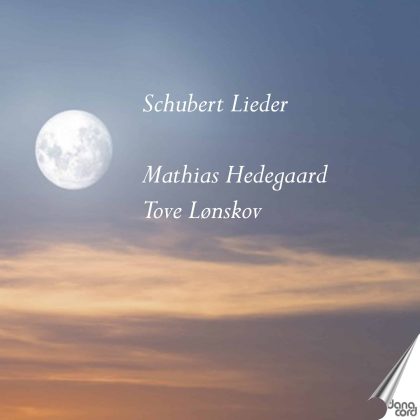Franz Schubert
Die schöne Müllerin
1. Das Wandern
2. Wohin?
3. Halt!
4. Danksagung an den Bach
5. Am Feierabend
6. Der Neugierige
7. Ungeduld
8. Morgengruss
9. Des Müllers Blumen
10. Tränenregen
11. Mein!
12. Pause
13. Mit dem grünen Lautenbande
14. Der Jäger
15. Eifersucht und Stoltz
16. Die liebe Farbe
17. Die böse Farbe
18. Trockne Blumen
19. Der Müller und der Bach
20. Des Baches Wiegenlied
Edvard Grieg
21. To brune øjne (Op. 5, No. 1) Two brown Eyes
22. Jeg elsker dig (Op. 5, No. 3) I Love You
23. Ved Ronderne (Op. 33, No. 9) By the Rondane Mountains
24. Våren (Op. 33, No. 2) Spring
25. Udfarten (Op. 9, No. 4) The Voyage
About this recording of “Die schöne Miillerin” ©
No other music was closer to Aksel Schiotz’s heart than these Schubert songs. In his day it was not usual to hear a complete performce. But Schiotz sang the complete work, happily, often, and most succesfully.
In 1939 he also started to record individual songs from the cycle, hoping to accomplish a complete recording. The war intervened, however (but listen and read in vol 4, DACOCD 454).
In 1938, when Schiotz went to London to meet Fred Gaisberg and other HMV executives, he was welcomed as a man of the future, with affectionate hospitality. In 1945, when he went
there to renew the contacts, the mood was that of a happy reunion, so Schiotz unblinkingly proposed that he record “Die schöne Müllerin”, for a start.
Somebody else did blink, perhaps, for an eight record-set with Lieder was not usual fare, even for HMV (which was why Walter Legge invented “Society” issues). But, “why not?” they said and immediately took steps to hire Gerald Moore for the recording.
In ‘Am I too Loud” Moore wrote: “I made a new friend when the great Dane Aksel Schiotz came to London to record Die Schöne Müllerin. Now I believe that Aksel Schiotz was one of the
few modest tenors that I have ever met. He was not always talking about himself; he did not tell me where he had been or where he was going, he did not tell me about his successes here and how they were clamouring for him there. He was quiet, he was modest and this is a miracle in a tenor. After having worked in Denmak during the German occupation in the underground movement his career was opening up with the richest promise.
His press notices for his London recitals with me and for his recordings were excellent; he alternated with Peter Pears in Benjamin Brittens’ ‘The Rape of Lucretia’ at Glyndeboume, singing in perfect English.”
RELEASE DATE: SEPTEMBER 1998
CATALOGUE NUMBER: DACOCD 452
EAN: 5709499452004




